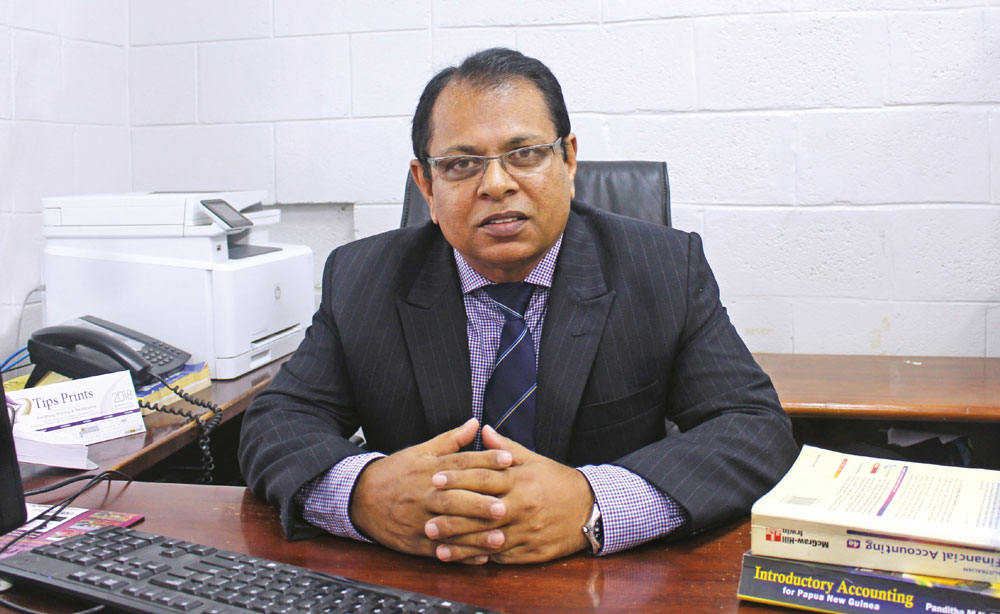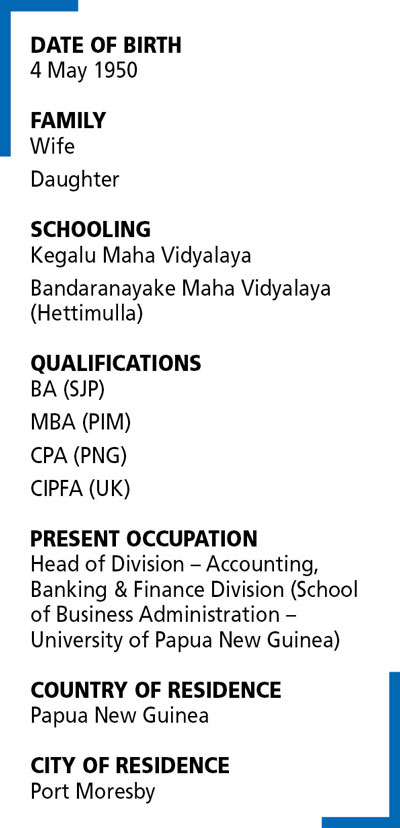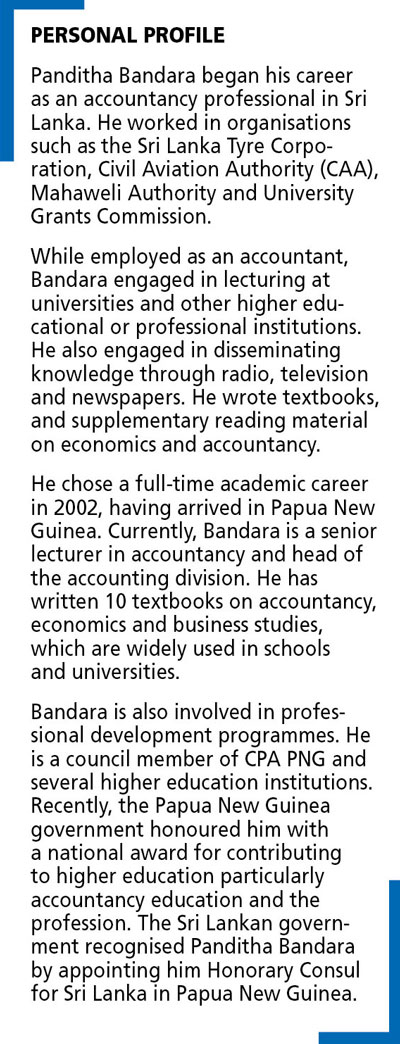SRI LANKANS OVERSEAS
LABOUR MOBILITY
Panditha Bandara follows Sri Lanka’s ‘brain gain’ – not drain
Q: How do you perceive Sri Lanka today?
A: In the last two decades, Sri Lanka has displayed tremendous progress on many fronts. The middle class has expanded in leaps and bounds. There is infrastructure development in almost every province with high-rise buildings emerging in an unprecedented manner. Expressways reduce travel time between provinces.
So the country has modernised rapidly. Women – particularly of the younger generation – are more economically independent and exercise equal rights.
But there are areas where Sri Lanka is on the wrong track. Politicians have become a powerful group and control virtually everything. The cities are filthy. Social values such as respect for others, ethical behaviour and working for mutual benefit are fast eroding.
As a result, the country is rapidly changing from a pluralistic society to an individualistic one.
Q: And how do compatriots in your country of domicile perceive Sri Lanka?
A: Papua New Guinea (PNG) is a developing nation with an abundance of resources including gold, copper, oil, natural gas and timber. Sri Lankan professionals have been employed here and contributed to this country for several decades. They hold high positions in both the private and public sectors. Sri Lanka’s contribution is highly valued.
They say Sri Lankans assist them to develop skills and inculcate good values. At a recent discussion, a senior minister who visited Sri Lanka said the island is already a developed nation. He noted that it’s easy to get along with Sri Lankans because of their peaceful and professional approach, and that Papua New Guinea needs more Sri Lankans.
Q: What were your impressions of Sri Lanka on your last visit?
A: I have visited Sri Lanka annually over the last 16 years typically for a month and a half, and travel around the country. During my stays, I’ve witnessed the infrastructure development and in addition, an improvement in tourist destinations.
However, I note that agricultural land particularly paddy fields haven’t been productive for some years. This is due to the high cost of labour and other inputs, and threats from wild boars.
Furthermore, I noticed slow-moving government infrastructure projects creating traffic congestion and inconveniencing people living in surrounding areas. I also noted that many school leavers are becoming three-wheel taxi operators whereas these youth can be absorbed into technical and vocational colleges.
Q: From afar, how do you perceive news about Sri Lanka?
A: I read both Sinhala and English language online newspapers on a daily basis. If one were to believe all the headlines, ‘there is no government in Sri Lanka,’ ‘there’s no law and order,’ ‘the Northern Province has been taken over by extremists,’ ‘the government is doing nothing for the country’ and ‘the country is a desert with no forests.’
Citizens of the country know that this type of adverse news isn’t always accurate. Responsible reporting is important for a developing country such as Sri Lanka.
Q: And how do you view the brain drain?
A: I do not think that there is ‘brain drain’ in Sri Lanka; it is mobility of labour and ‘brain gain.’
With globalisation, people in both developing and developed countries have the opportunity to relocate from one country to another, similar to moving from one company to another. Some migrate and others leave the country temporarily for employment, and return after their contracts end. They also bring foreign exchange into the country and for their families.
Highly educated individuals need sufficient breathing space at the likes of NASA, the FAO, WHO, World Bank, IMF and multinational companies to improve their research capabilities. Then the entire world will benefit from them.
Q: What should Sri Lanka focus on most in the coming decade?
A: Set up private universities or colleges to increase the number of quality graduates in fields for which global demand exists including digital technology, nursing and care, tourism and hospitality.
Encourage and promote commercial agriculture and agro-industries to enable young educated people to engage in those professions with dignity.
It is important to take remedial measures to improve rural schools that lack teachers for mathematics, English and science. In some schools, students fail these subjects at the O-Levels due to this reason.
Finally, the country should produce ethical leaders.
Q: And what are your hopes for the country in the next decade or so?
A: Achieving fully fledged democracy, sustainable development, less political involvement in people’s lives and a smiling nation.










Leave a comment